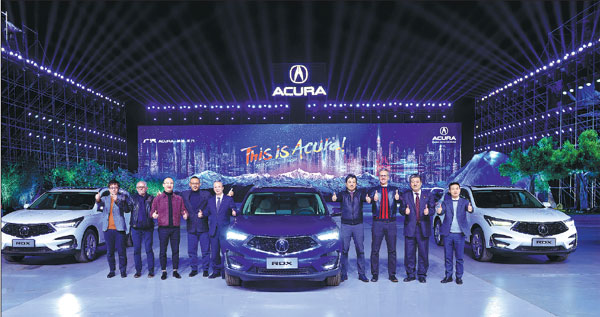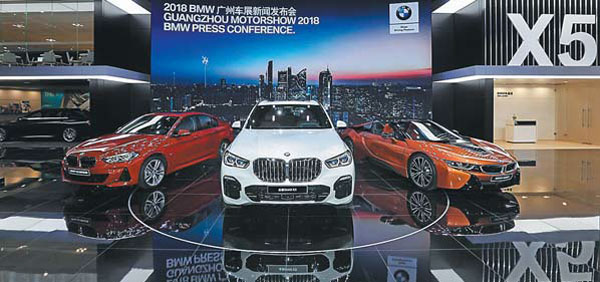
From the People’s Daily app.
This is Story in the Story.
Despite a general slowdown in car sales in China in the second half of this year, the luxury vehicle market continues to grow and is likely to remain strong next year.
In July, the Chinese central government reduced tariffs on imported automobiles from 25 percent to 15 percent.
The result of reduced tariffs within the auto sector will mean that foreign automakers like BMW and Tesla, which currently import a relatively higher proportion of the vehicles that they sell in China, will benefit. It means luxury models will become slightly more affordable for Chinese consumers.
In 2017, China accounted for 90 percent of sales growth by luxury automakers worldwide and luxury cars made up a 10.3 percent share of China's overall passenger vehicle market.
That's according to The Nikkei, which calculated the figure based on data from the world's leading luxury car makers.
Today’s Story in the Story will look at what drives car sales in China and what the short to medium term future looks like.

Executives of GAC Honda introduce the all-new RDX at a launch event in Lijiang, Yunnan province. (Photo: China Daily)
Acura, the premium marquee of Japanese automaker Honda Motor Co, unveiled its new brand vision and launched its third China-made model, the all-new RDX, in Lijiang in Southwest China's Yunnan province, as part of its efforts to target China's luxury car market and meet the high demands of younger customers.
The new brand vision "I am different" refers to daring to challenge the traditional ideas, break the routine and open up a new road to success, according to Hiroharu Tanaka, deputy general manager at GAC Honda Automobile Sales Company.
With the newly presented brand vision, the automaker is targeting China's young customers, who are inclined to stand out from the crowd and pursue a better quality of life.
Zheng Heng, executive deputy general manager of Sino-Japanese joint venture GAC Honda Automobile Co, said: "The brand vision will build a bridge between Acura and its distinctive customers and allow them to get to know each other even better."
Sean Green, senior vice-president of sales and marketing at BMW's Chinese joint venture BMW Brilliance, expects the premium vehicle segment to grow at 8 to 10 percent in 2019.
"We don't expect any growth in terms of the base segment, but on the premium side, we do expect some growth, and that's because people want to upgrade. When you get more restrictive cities in terms of license registration, people want to upgrade to premium cars, and we will benefit from that," he said.

BMW Group shows its compelling product portfolio at the Guangzhou Auto Show, enhancing its competitiveness in the luxury SAV and high-end new energy vehicle segments. (Photo: China Daily)
Owing to the consumption upgrade among Chinese customers, the luxury automobile market is witnessing significant growth, although there is a decrease in China's overall automobile market, said Liu Zhi, president of BMW China Automotive Trading Ltd.
From January to October this year, BMW sold more than 516,000 BMW and MINI cars to the Chinese market, a 6 percent increase from the same period last year, according to Liu.
Reflecting on the past four decades of China's reform and opening-up, China's economy grew at a rate as described by Chinese economist, Justin Lin Yifu, as "never having happened before in human history" a period that has boosted China with incredible momentum of growth in both the national economy and improvements in people's lives.
Fueled by surging private vehicle consumption since the beginning of the 1990s, the country has seen exploding automobile market growth, and has become the largest car market in the world.
"China's car market is hitting a bottleneck, but it remains the largest worldwide, and the demand remains. The market is very resilient: The longer it is contained, the higher the outbreak will be later," said Hong Hao, vice-president of Dongfeng Renault.
Additionally, as Chinese demand for cars grows, many automakers have also moved their design and development operations to China to better meet the needs of Chinese consumers. An increasing number of new vehicles are also being developed specifically for production and sale in China.
(Produced by Nancy Yan Xu, Brian Lowe, Lance Crayon and Da Hang. Music by: bensound.com. Text from China Daily and China Plus.)


